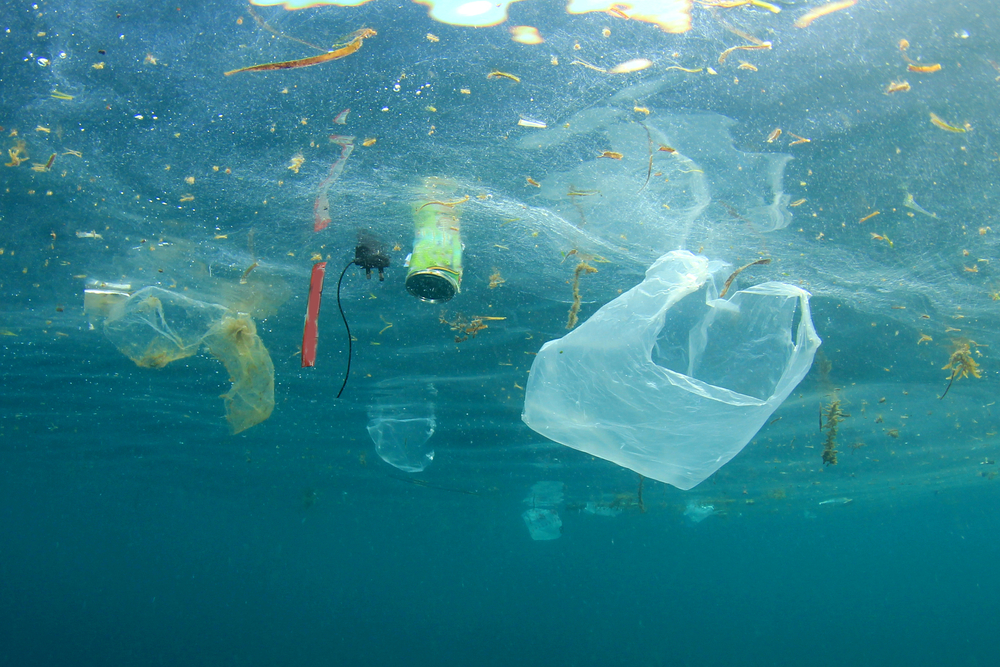It seems that everywhere you turn you are reminded about the impact of plastic waste and the damage we are doing to the environment. But wind back ten years and there was no mention of 5p plastic bags or the invention of microbeads and the trillions of micro plastics clogging our rivers and seas. But surely this was all inevitable and I was not the only one to foresee the devastation we were creating. It seems we need to be on the brink of not only a crisis but also an epidemic before reports and news on the issue are able to rise above Love Island drama? It has to almost become a sound bite and easy to understand before we will let it into our lexicon, like carbon, ozone layer and deforestation before it. Have we fixed the other issues before we turn to plastic? I understand only the ozone layer is now seeing signs of repair after years of bans on CFCs and other harmful chemicals (or maybe it was the cancellation of Concorde! ;-). We can make a difference and certainly the plastic issue is within the control of our country to make a meaningful global impact.
This week MPs debated the issue on the back of a 250,000 people petition as apparently the public has ‘woken up’ to the issue of packaging. What I find incredible with these situations is that the solution has usually been staring us in the face for decades before they become endemic. If countries in Africa, such as Kenya, have been able to ban plastic bags for over a year why has it taken so long for us to shift change our behaviours here in the UK?
Why today am I offered a 10p ‘bag for life’ every time I arrive in a supermarket without a suitable carrying bag, when for decades America had their famous paper bags for their groceries which seemed suitable for the most affluent country in the world? Co-Op, who recently seem to have taken over every supermarket where I live, have managed to provide fully biodegradable plastic bags but still like to charge a fee of 6p per bag. Call me cynical but surely charging for an environmentally conscious bag goes against the idea of the plastic bag tax originally?
The technology is available so why are we not as a country demanding every part of our supply chain moves to paper, biodegradable plastic and other forms of material that can do a suitably good job of holding items and protecting food? Imagine the impact that would have in Europe and wider if we became a beacon of a plastic free society. And don’t get me wrong I understand there is very much a need to some industries such as medicine to retain the use of one use plastics. But do I really need my avocados in a hard plastic shell and then wrapped in a plastic bag?
Personally, I am not a big fan of the current push towards people bringing their own containers, which Waitrose recently talked about, as certainly that isn’t a way to get mass adoption. Certainly, it doesn’t work well with deliveries and it is a change of habit that I am sure most busy people would try to avoid. Instead using materials like corn starch, paper and other biodegradable materials that compost following their use.
Again, I am not a big advocate of recycling, just because as a cynic I have known for years that my local authority, like the rest around the country are struggling to deal with the volumes and cost it involves. Having tried to educate employees for years on what should go into the recycle bin in the office I gave up as another dirty or incorrect container was put in the recycling bin rendering it suitable only for landfill or incineration.
Likewise, it has become apparent that we are shipping tons of ‘recycling’ waste oversees. China has now banned imports of waste and so other countries are being devastated by countries dropping their crap in their backyards.
Therefore I am a believer that we need to make some clear commitments that manufacturers of products are responsible for the disposal of their packaging and should that not be possible it should be of an organic matter that will not, whether it is incorrectly recycled or shipped around the world, cause a long lasting impact on our environment.





Leave a Reply